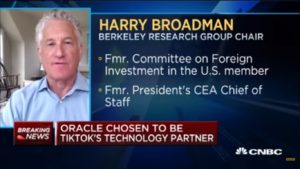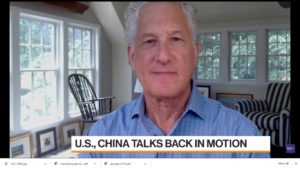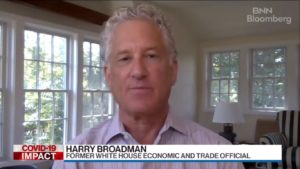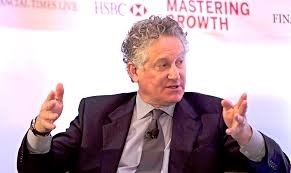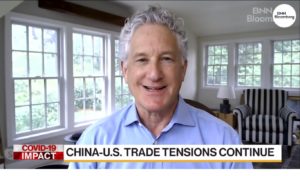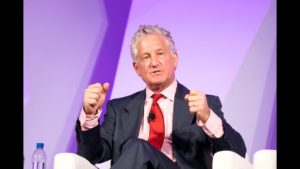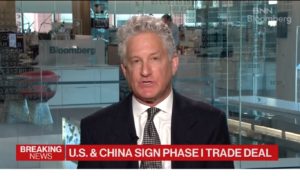 |
| Harry Broadman |
Trade negotiations between the US and China have moved away from substantial issues, as the Trump administration is using the ongoing trade war as a tool to win the presidential elections in the US 2020, says
Harry Broadman, former top trade and economic adviser to Presidents George H.W. Bush and Bill Clinton
to CNBC.
CNBC:
Harry Broadman, former Assistant U.S. Trade Representative under the Bill Clinton administration and current partner at the Berkeley Research Group, told CNBC that any White House communications regarding the trade war should be seen through the lens of the president’s “singular focus” on his 2020 re-election campaign, adding that the deal touted by U.S. trade officials was “not much of a deal in any kind of meaningful way.”
“As everyone knows, it does not touch on the threshold issues that the administration has been talking about for two years, which is the structural reforms, the intellectual property protections, subsidies, the state-owned enterprises and the like,” Broadman told CNBC via telephone from Washington on Tuesday.
“It’s not even obvious to me how much of that was even discussed in the conversations and the reason for that, I believe, is the metric that Trump and his lieutenants, the Secretary of the Treasury and the U.S. Trade Representative, focus on is how to eliminate the merchandise bilateral trade deficit between the two countries.”
Broadman, who also served as chief of staff on George H.W. Bush’s Council of Economic Advisers, suggested that since the Trump campaign’s focus in both 2016 and 2020 is on eliminating the bilateral trade deficit on goods, the administration’s sole focus would be on demonstrating to Trump’s base that the promise been fulfilled. However, he dismissed the merchandise bilateral trade deficit as an “economically meaningless metric.”...
Broadman, who was part of the U.S. team that negotiated with the WTO, said a marked shift had occurred away from a focus on multilateral and plurilateral regional agreements and toward bilateral efforts between individual nations.
“The other issue within that context, particularly in the bilateral context with China, is that these ‘agreements’ with China and the U.S. under the Trump administration, frankly, are making the U.S. look more like China, in the sense that these state-to-state deals on agricultural purchases are not market-driven purchases,” Broadman said.
He added that the Trump administration was correct to criticize China for being a member of the WTO while maintaining a prominent state role in its economy, but suggested that Trump was now “centering his negotiations by employing the U.S. government on the transaction side.”
More at CNBC.
Harry Broadman is a speaker at the China Speakers Bureau. Do you need him at your meeting or conference? Do get in touch or fill in our speakers' request form.
Are you looking for more experts on the ongoing trade war between China and the US? Do check out this list.
